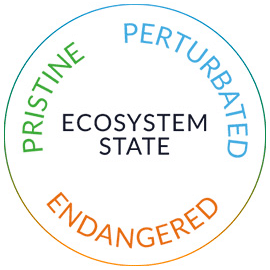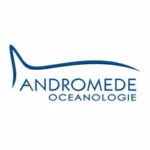EXPLORATION
Discovering marine biodiversity and understanding the challenges of protecting the oceans is an important objective for Andromède Océanologie. Highlighting the marine biodiversity of a site, an atoll, a country, is a skill that we have patiently developed. The results are available in books, documentaries and conferences for the general public to enhance the natural heritage of the territories.
Andromède Océanologie is developing its own expedition projects with the “Gombessa” series, which aims to magnify marine life, mainly in the twilight zone beyond 100 m deep.
The Gombessa missions are chosen on the basis of their naturalistic interest and developed around three axes:
- a scientific mystery, which forms the basis of the expedition;
- a scuba diving challenge requiring deep, committed, often extreme dives;
a promise unique and unprecedented images of marine species and/or natural behavior
To date, five expeditions have been carried out:
- Gombessa 1, The cœlacanth, a dive toward our origins: Laurent Ballesta and his team are leading an expedition to South Africa to dive with the cœlacanth and carry out the first scientific protocols on the mythical “living fossil” living beyond 120 m deep.
- Gombessa 2, The grouper mystery: The team is interested in a unique aggregation of Pacific camouflage groupers in Fakarava Atoll and illustrates the key role that their reproduction plays in the balance of the lagoon ecosystem.
- Gombessa 3, Antarctica: naturalist photographers Laurent Ballesta and Vincent Munier travel to Antarctica for a pioneering mission that combines exploration, diving and photography. The expedition is part of a larger project launched by director Luc Jacquet (rewarded with an Oscar for best documentary in 2006 for The march of the Penguins), aimed at measuring the consequences of global warming in this polar region.
- Gombessa 4, 700 sharks into the dark: Back to Fakarava … but for breathtaking night dives in the midst of a horde of grey sharks. A chaotic buffet where sharks actually hunt in a well-organized pack.
- Gombessa 5, Planet Mediterranean: in 2019, in line with the houses under the Cousteau Sea, Laurent and three divers from the Gombessa team live at saturation for 28 days in a bathyal station pressurized at 11 times the atmospheric pressure. Divers explore the great depths of the French Mediterranean, from Marseille to Monaco, and decompression only takes place at the end of the mission.
Each expedition has been the subject of productions, notably for the ARTE channel and National Geographic. “700 Sharks into the dark” has received more than 70 international awards and was nominated for the Emmy Awards




